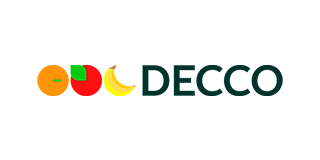
Decco Ibérica
Phytosanitaries
Postharvest Solutions to Maintain the Quality of Verna Lemon
Recommendations from Decco to Prevent Senescence of Verna Lemon Skin

The senescence of the lemon skin significantly affects the return on investment for the agri-food chain. A canary yellow color, skin spots, sunburns, and abrasions on the skin's surface devalue the lemons and impact this line of business.
What is senescence and how does it affect lemon skin?
The senescence of lemon skin involves a series of complex biochemical changes. Some of the chemical triggers include:
- Cell wall degradation: Enzymes such as polygalacturonases and cellulases break down cell wall components like pectin and cellulose, resulting in a decrease in lemon skin firmness.
- Ethylene production: Ethylene is a plant hormone that triggers and accelerates the ripening and senescence process in many fruits, including lemons. Increased ethylene production during lemon senescence contributes to tissue breakdown and quality loss.
- Lipid oxidation: There is an increase in lipid oxidation in the lemon skin, leading to the formation of oxidative compounds that can cause changes in the color and texture of the skin.
- Accumulation of secondary metabolites: Senescence may be associated with the accumulation of secondary metabolites, such as phenols and volatile compounds, which can contribute to the development of undesirable aromas and flavors in the lemon skin.
These biochemical processes interact in complex ways to trigger lemon skin senescence and contribute to its physical and sensory deterioration.
Postharvest solutions to maintain the quality of Verna lemon
Proper management both in the field and in the packinghouse is crucial to ensure that Verna lemons meet the high standards of consumer demands. During the postharvest period, it is essential to follow these steps:
- Carefully select the batches and adjust their commercial release according to the fruit's condition
- Disinfect:
- The warehouse (environment and surfaces)
- The treatment solution
- The surface of the fruits
- Apply postharvest solutions that adequately protect Verna lemons
To delay the inevitable senescence process of Verna lemon skin, DECCO recommends:
- DECCO Protect Drencher: Improves the fresh appearance of lemons for cold storage in the second part of the campaign.
- DECCO Green: Protects the calyxes and prevents them from becoming entry points for fungi that cause rot.
- DECCO Pyr: The combination of skin senescence and ethylene generation attracts postharvest fungi activity and infection, leading to increased rot levels. DECCO Pyr, formulated with 40% pyrimethanil, is an excellent solution to prevent rot spread in lemons.
- Naturcover Balance: An edible coating of plant origin designed to protect lemon skin from aging.
You can count on DECCO to maximize the commercialization of your fruit.












